SEAT Leon VS SsangYong Korando – Specs, Efficiency & Price Comparison
Which model is the better choice – the SEAT Leon or the SsangYong Korando? We compare performance (272 HP vs 190 HP), boot capacity (380 L vs 551 L), efficiency (0.40 L vs 16.80 kWh7.50 L), and of course, the price (24100 £ vs 27000 £).
Find out now which car fits your needs better!
The SEAT Leon (Hatchback) is powered by a Petrol, Petrol MHEV, Diesel or Plugin Hybrid engine and comes with a Manuel or Automatic transmission. In comparison, the SsangYong Korando (SUV) features a Petrol or Electric engine and a Manuel or Automatic gearbox.
When it comes to boot capacity, the SEAT Leon offers 380 L, while the SsangYong Korando provides 551 L – depending on what matters most to you. If you’re looking for more power, you’ll need to decide whether the 272 HP of the SEAT Leon or the 190 HP of the SsangYong Korando suits your needs better.
There are also differences in efficiency: 0.40 L vs 16.80 kWh7.50 L. In terms of price, the SEAT Leon starts at 24100 £, while the SsangYong Korando is available from 27000 £.
Compare all the key specs now and find out which model fits your lifestyle best!
SEAT Leon
The SEAT Leon impresses with its dynamic design and sporty edge, making it a standout choice in its class. Its interior is characterised by a modern, driver-focused cockpit that combines functionality with an emphasis on comfort. The car delivers a responsive driving experience, thanks to its advanced engineering and agile handling capabilities.
details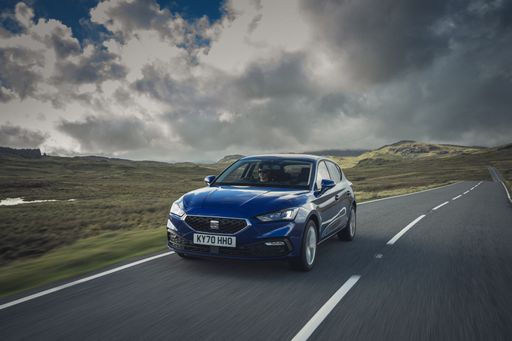 @ seatmedia
@ seatmedia
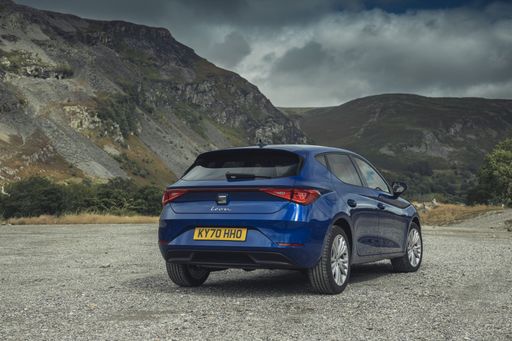 @ seatmedia
@ seatmedia
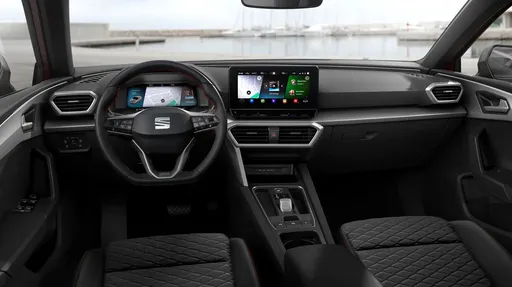 @ seatmedia
@ seatmedia
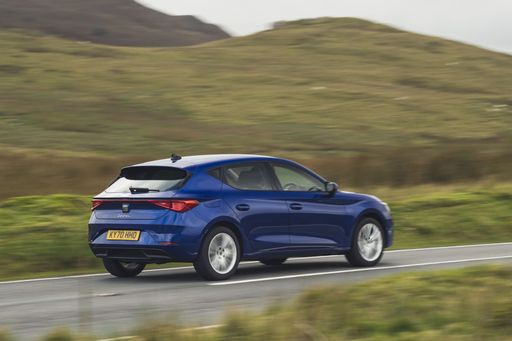 @ seatmedia
@ seatmedia
SsangYong Korando
The SsangYong Korando offers a blend of contemporary design and practicality, making it an appealing choice for urban adventurers. Its spacious interior and comfortable seating ensure a pleasant driving experience for both driver and passengers. With its reliable performance and advanced features, the Korando stands out in the competitive SUV market.
details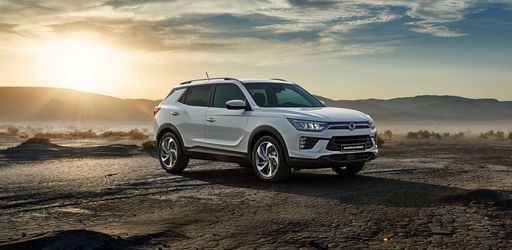 @ Ssangyong
@ Ssangyong
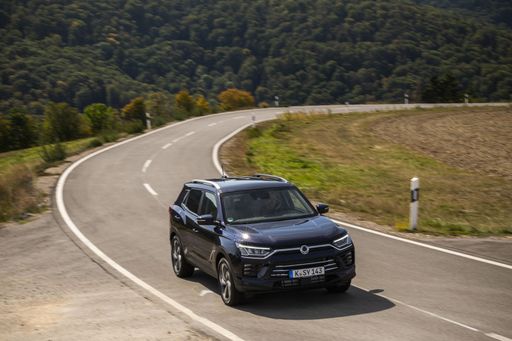 @ Ssangyong
@ Ssangyong
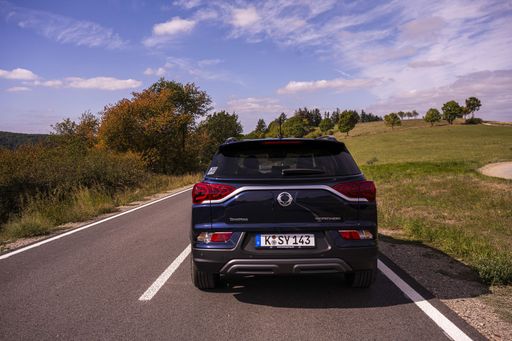 @ Ssangyong
@ Ssangyong
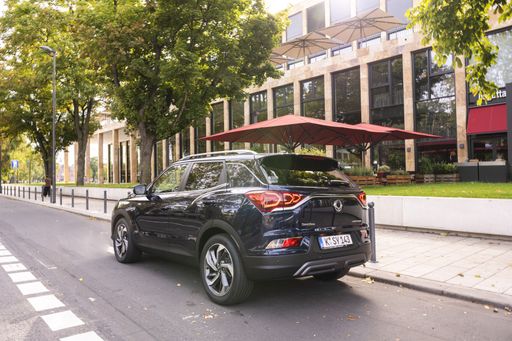 @ Ssangyong
@ Ssangyong
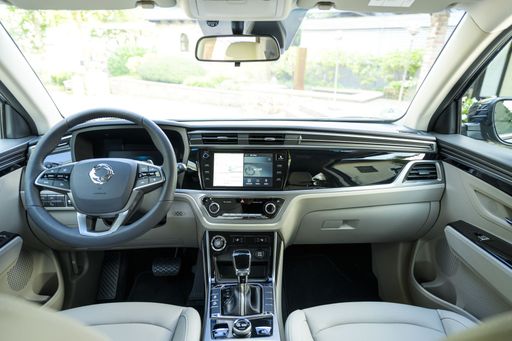 @ Ssangyong
@ Ssangyong

|

|
|
|
|
Costs and Consumption |
|
|---|---|
|
Price
24100 - 35700 £
|
Price
27000 - 42000 £
|
|
Consumption L/100km
0.4 - 5.7 L
|
Consumption L/100km
7.5 - 8.6 L
|
|
Consumption kWh/100km
-
|
Consumption kWh/100km
16.80 kWh
|
|
Electric Range
133 km
|
Electric Range
339 km
|
|
Battery Capacity
19.70 kWh
|
Battery Capacity
-
|
|
co2
8 - 129 g/km
|
co2
0 - 197 g/km
|
|
Fuel tank capacity
40 - 45 L
|
Fuel tank capacity
50 L
|
Dimensions and Body |
|
|---|---|
|
Body Type
Hatchback
|
Body Type
SUV
|
|
Seats
5
|
Seats
5
|
|
Doors
5
|
Doors
5
|
|
Curb weight
1344 - 1670 kg
|
Curb weight
1517 - 1840 kg
|
|
Trunk capacity
270 - 380 L
|
Trunk capacity
551 L
|
|
Length
4368 mm
|
Length
4450 - 4465 mm
|
|
Width
1799 mm
|
Width
1870 mm
|
|
Height
1442 - 1460 mm
|
Height
1620 - 1645 mm
|
|
Payload
460 - 521 kg
|
Payload
410 - 463 kg
|
Engine and Performance |
|
|---|---|
|
Engine Type
Petrol, Petrol MHEV, Diesel, Plugin Hybrid
|
Engine Type
Petrol, Electric
|
|
Transmission
Manuel, Automatic
|
Transmission
Manuel, Automatic
|
|
Transmission Detail
Manual Gearbox, Dual-Clutch Automatic
|
Transmission Detail
Manual Gearbox, Automatic Gearbox, Reduction Gearbox
|
|
Drive Type
Front-Wheel Drive
|
Drive Type
Front-Wheel Drive, All-Wheel Drive
|
|
Power HP
110 - 272 HP
|
Power HP
163 - 190 HP
|
|
Acceleration 0-100km/h
7.7 - 10.5 s
|
Acceleration 0-100km/h
8.40 s
|
|
Max Speed
197 - 220 km/h
|
Max Speed
156 - 191 km/h
|
|
Torque
220 - 360 Nm
|
Torque
260 - 360 Nm
|
|
Number of Cylinders
4
|
Number of Cylinders
4
|
|
Power kW
85 - 200 kW
|
Power kW
120 - 140 kW
|
|
Engine capacity
1498 - 1968 cm3
|
Engine capacity
1497 cm3
|
General |
|
|---|---|
|
Model Year
2024 - 2025
|
Model Year
2021 - 2023
|
|
CO2 Efficiency Class
D, B
|
CO2 Efficiency Class
F, G, A
|
|
Brand
SEAT
|
Brand
SsangYong
|
SEAT Leon
The SEAT Leon: A Blend of Performance and Innovation
The SEAT Leon has firmly established itself as a standout model, blending sleek aesthetics with cutting-edge technology. Known for its versatility and dynamic performance, this hatchback has become a staple choice for drivers seeking style and substance. Join us as we delve into the technical intricacies and innovative features that make the SEAT Leon a formidable contender in its class.
Dynamic Engine Options
The SEAT Leon offers a diverse range of engine choices, catering to various driving preferences. From efficient petrol options with mild-hybrid technology to powerful diesel engines, the Leon provides an impressive power range between 110 to 204 PS. Drivers can also opt for the environmentally friendly plug-in hybrid, featuring a 1.4 e-HYBRID powertrain that boasts a consumption rate as low as 1.1 L/100km and an electric range of up to 63 km.
Advanced Transmission Systems
Optimising driving efficiency, the SEAT Leon is available with both a manual gearbox and an advanced automatic dual-clutch transmission (DSG). The DSG offers seamless gear changes, enhancing the driving experience by providing precise control and improved fuel economy. This versatility allows the Leon to cater to drivers who appreciate the traditional feel of manual shifting and those who prefer the convenience of automatic transmissions.
Intelligent Design and Comfort
The SEAT Leon’s interior is designed with the modern driver in mind. Sporting a spacious cabin accommodating up to five passengers, it provides a balance of comfort and functionality. The boot space ranges from 270 to 380 litres, ensuring ample room for luggage. The Leon's ergonomic layout, coupled with optional advanced features such as ambient lighting and premium upholstery, positions it as a leader in comfort and practicality.
Cutting-edge Technology and Safety
The SEAT Leon is not just about performance; safety features prominently in its design. It is equipped with the latest driver assistance systems, such as adaptive cruise control and lane-keeping assist, ensuring a safer driving experience. The infotainment system offers seamless connectivity, supporting both Android Auto and Apple CarPlay, enabling drivers to stay connected while on the road.
Efficiency and Sustainable Driving
Emphasising sustainability, the SEAT Leon offers CO2 emissions ranging from 25 to 132 g/km, showcasing its commitment to environmental responsibility. Fuel consumption varies between a thrifty 1.1 to 5.8 L/100km, catering to both eco-conscious drivers and those focused on performance. With a competitive price range, the Leon stands out as an economical choice in its segment, balancing initial cost and long-term benefits.
Conclusion
The SEAT Leon continues to set benchmarks with its combination of style, performance, and technological innovation. Its array of engine options, advanced safety features, and luxurious interior make it a compelling choice for modern drivers. Whether you prioritise fuel efficiency, power, or comfort, the SEAT Leon offers a tailored driving experience unmatched in its class.
SsangYong Korando
Discovering the SsangYong Korando: Combining Performance with Innovation
The SsangYong Korando has persistently evolved, emerging as a formidable presence in the compact SUV segment. With a blend of intriguing design, versatile engine options, and cutting-edge technology, the Korando aims to cater to a diverse array of driving preferences and needs. In this article, we delve into the technical intricacies and pioneering innovations that define the vehicle.
A Versatile Engine Line-up: Catering to Petrol and Electric Enthusiasts
The Korando provides a remarkable variety of powertrains, accommodating drivers who favour both traditional petrol engines and modern electric motors. For petrol enthusiasts, the Korando comes equipped with a 1.5 GDI-T engine, boasting a power output of 163 PS. Available in both manual and automatic transmission, and offering either front-wheel or all-wheel drive, these variants promise a dynamically engaging driving experience.
The brand’s commitment to sustainability is evident with the introduction of the E-Motion model, which is powered by an electric motor delivering 190 PS. With a commendable range of 339 km and an energy consumption of 16.8 kWh/100km, the E-Motion exemplifies SsangYong's ambition to shape the future of eco-friendly motoring.
Technical Excellence: Performance and Efficiency
With a peak speed ranging between 156 to 191 km/h, the Korando ensures that drivers experience both agility and responsiveness. The petrol variants offer a respectable efficiency, with fuel consumption spanning from 7.5 to 8.6 L/100km, while the electric variant promotes zero emissions. This makes the Korando an optimal choice for those conscious of both performance and environmental impact.
Acceleration from 0 to 100 km/h in just 8.4 seconds—paired with a torque range of 260 to 360 Nm—ensures an exhilarating ride whether navigating city streets or venturing onto open highways. Moreover, with a robust towing capacity, the Korando stands as a reliable companion for any adventure.
Interior Quality and Innovative Features
Inside the Korando, occupants are greeted by a spacious cabin designed with emphasis on comfort and practicality. Advanced infotainment systems seamlessly integrate with connectivity features, ensuring that every journey is both entertaining and stress-free. Emphasising safety, the Korando is equipped with multiple driver-assistance systems, including adaptive cruise control and lane-keeping assist.
Mirroring its exterior aesthetics, the interior is crafted with premium materials, providing a serene ambience throughout the ride. With abundant luggage space, a family of five can effortlessly embark on long-distance travels without compromises on space or comfort.
Conclusion: A Synergy of Tradition and Modernity
The SsangYong Korando seamlessly merges robust performance with cutting-edge innovation, appealing to a wide demographic of drivers. Whether drawn to the unmistakable power of its petrol engines or the sustainable allure of its electric variant, prospective owners are sure to find a model that complements their lifestyle. The Korando remains an impactful player in the SUV landscape, continually adapting to the demands of modern-day motoring while staying true to its heritage.
The prices and data displayed are estimates based on German list prices and may vary by country. This information is not legally binding.
